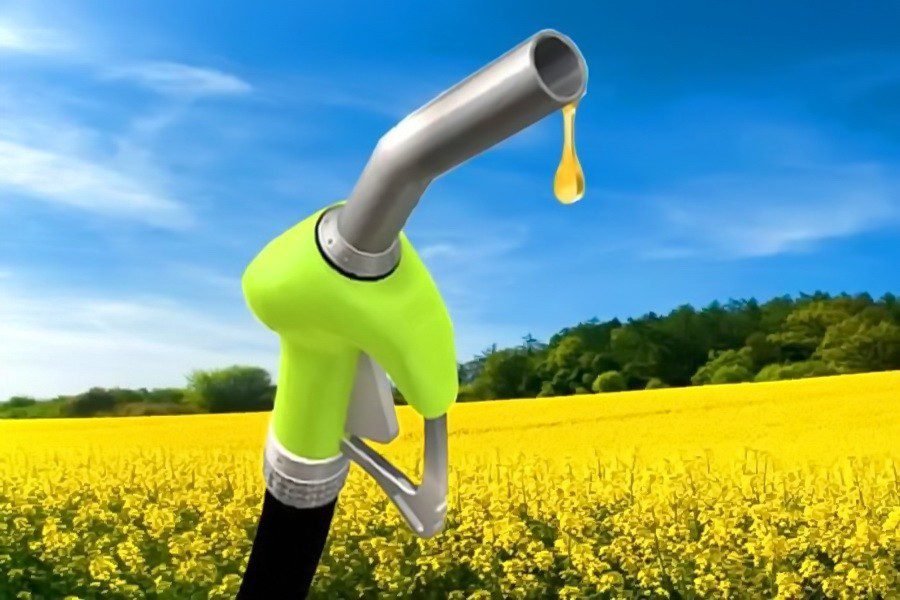
What is biodiesel for cars
Content
The use of cars is one of the main reasons why the environment is polluted and the earth's resources are depleted. Even with the increase in the production of electric vehicles, the situation is not improving yet. The problem is that even at the time of the creation of an electric vehicle, or to be more precise, of its battery, a large amount of harmful substances gets into the atmosphere.
Reducing pollution of the atmosphere of our common home is the main task of scientists. It encourages them to develop alternative fuels, the characteristics of which will satisfy the needs of the sophisticated motorist, but at the same time reduce the consumption of natural resources. For this purpose, a special type of fuel for cars was developed - biodiesel.

Can it really replace the conventional diesel option? Let's try to figure it out.
What is biodiesel?
In short, this is a substance that is the result of chemical reactions between certain vegetable and animal fats. During the production process, companies developing such a fuel receive a methyl product. Due to its flammable properties, ether can be used as an alternative to diesel fuel.
Since both options have similar combustion parameters, biofuels can be used to fuel a conventional diesel engine. Of course, in this case, many parameters of the unit will decrease. A biofuel car is not as dynamic, but on the other hand, not every driver normally participates in rally races. This is enough for a measured movement, and the decrease in the efficiency of the power unit by 5-8 percent is not so noticeable with a quiet ride.

The production of alternative fuels for many countries is more profitable from an economic point of view than the extraction or purchase of oil products.
How is biodiesel made?
To obtain this type of fuel, the country can use rapeseed, soybeans, peanuts, sunflowers and other oily crops. Many people find it easier to perceive the situation when the oil for the production of biodiesel is taken not from those crops that can be used for food, but from other plants. For this reason, you can often see huge fields planted with rapeseed.
The procedure itself, which allows the production of fuel, is quite complicated, and it is carried out by experienced chemists. First, oil is obtained from the harvested crop. Then it is used together with a monohydric alcohol (usually methanol) for a chemical reaction with the participation of a catalytic substance. The process is activated by heating the raw material up to fifty degrees Celsius.

As a result, the active component is obtained - methyl ether and glycerin. The first fraction is subsequently purified from methanol impurities. Without cleaning the product, it cannot be used in engines, since its combustion will lead to inevitable coking of all parts that take part in the operation of the internal combustion engine.
To obtain a clean biodiesel suitable for refueling a car, it is purified by centrifugation and water with a sorbent. The content of water in the substance is also unacceptable, as it promotes the appearance of microorganisms in the liquid. For this reason, the resulting purified methyl ether is dried.
One hectare of rapeseed land produces a ton of oil. Most of the product is obtained from the oil palm (if we take land crops) - up to 6 thousand liters of oil can be obtained from one hectare of planting. However, this fuel can only be bought for gold bars, so rapeseed is the best option.

To reduce the negative reaction to growing crops in fields suitable for wheat and other crops, some countries are sowing so-called "abandoned" plantations. Since rapeseed is an unpretentious plant, it can be grown where other crops will not take root or in areas with a small variety of vegetation.
In which countries is biodiesel used?
The development of clean fuel technology does not stand still, and almost every country in Europe is engaged in this. However, the United States is leading in this regard. In comparison with the world production, the share of this country is almost 50 percent. Brazil is in second place of all world manufacturers - 22,5 percent.
Next comes Germany - 4,8%, followed by Argentina - 3,8%, followed by France - 3%. At the end of 2010, the consumption of biodiesel and some types of biogas amounted to $ 56,4 billion. Just two years later, the popularity of this fuel has increased, and the volume of world consumption amounted to more than 95 billion dollars. And this is according to data for 2010.
And here are some statistics for 2018:

The European Environmental Commission has set a goal for manufacturers to increase the use of alternative fuels for cars. The bar that companies must reach is at least 10 percent of all cars must run on biofuel.
Benefits of biodiesel

The reason biodiesel gets so much attention is because of its environmentally friendly combustion. In addition to this factor, fuel has several more positive points:
- The diesel engine does not smoke so much during operation;
- The exhaust contains much less CO2;
- Has increased lubricating properties;
- Due to its natural origin, it has a completely different smell than that of petroleum products;
- Not toxic, but when it gets into the ground, its traces completely disappear after 20 days;
- Biofuel production can be organized on a small farm.
Disadvantages of biodiesel

While biodiesel is promising, this type of combustible material has some drawbacks, which is why many motorists are hesitant to switch to it:
- A drop in the efficiency of the power unit by approximately 8 percent;
- Its effectiveness decreases with the onset of frost;
- The mineral base has a negative effect on metal parts;
- A decent sediment appears (when used in the cold), which quickly renders filters or fuel injectors unusable;
- During refueling, you need to be careful, because fuel quickly corrodes the paintwork. If drops get in, their remains must be carefully removed;
- Since biological material degrades, it has a very short shelf life (no more than three months).
Watch also a short video on how the process of creating biofuels takes place:
Questions and answers:
What is biofuels for cars? It is a product that is obtained by mixing dehydrated bioethanol (30-40 percent) with gasoline (60-70 percent) and anti-corrosion additives.
What are the disadvantages of biofuels? Expensive production (a large area is required to grow raw materials), rapid depletion of land on which valuable crops could grow, high energy costs for the production of bioethanol.
Can biofuels be added? Most car manufacturers only allow biofuels with a 5% alcohol content. This alcohol content, according to the experience of many services, does not harm the motor.

